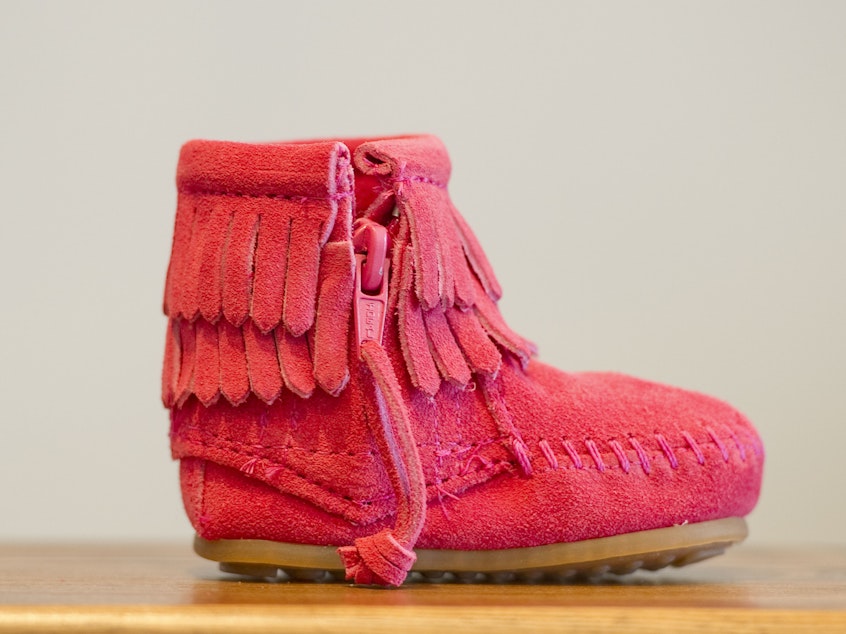Moccasin maker Minnetonka has apologized for appropriating Native American culture

The Minneapolis-based footwear company Minnetonka is not actually run by Native Americans, its CEO acknowledged on Monday.
David Miller issued the statement on Indigenous People's Day apologizing for profiting off Native culture and pledging to do more to support Indigenous communities going forward. He noted that Minnetonka first publicly apologized for this appropriation in the summer of 2020, calling that step "long overdue."
"We recognize that our original products, some of which are still sold today, have been appropriated from Native American culture," Miller wrote. "We deeply and meaningfully apologize for having benefited from selling Native-inspired designs without directly honoring Native culture or communities."
Miller said he was issuing the statement in order to "directly address two questions that have often been asked of us (rightfully so): Is Minnetonka Native-owned? Does Minnetonka support Native American peoples or causes?"
Native culture has been central to the brand for 75 years
Sponsored
Minnetonka started in 1946 as "one of many companies who sold handcrafted moccasins and Native-inspired accessories to roadside gift shops," Miller explained, and is now in its fourth generation of family ownership. It originally made its products in Minnesota, but has since shifted manufacturing operations to factories in China and the Dominican Republic.
While the company has since evolved to sell other kinds of shoes and accessories, it acknowledged that "moccasins remain a core part of our brand." And it's not just the product that has been appropriated, Miller said: The word "moccasin" itself is an anglicization of the Ojibwe word "makizinan."
The company actually redesigned its logo in 2008 to take out the word moccasin, which had previously appeared beneath its name in a slightly smaller font. Another redesign last year removed Native-American inspired symbols above and below the letter "T."
"For many years, we have privately supported Native causes in our home state of Minnesota — but simply giving back is not enough," Miller wrote. "We are taking a more active and public stance in supporting Native communities."
The company is bringing on a 'reconciliation advisor'
Sponsored
He said the company developed an action plan last fall, and is working with members of the Native community to deliver and expand on it. It's brought on one of its advisors, Adrienne Benjamin, as a "reconciliation advisor."
Benjamin, who is Anishinaabe and a member of the Mille Lacs Band of Ojibwe, is an artist and community activist. In a blog post for the company, she wrote about overcoming her initial hesitations and outlined several priorities for her new role.
"When a company is called out, there are always words, but real change and effort undoubtedly starts with the redistribution and sharing of resources," she wrote. "Since much of this company's wealth came from appropriation, it would only be right for this company to truly invest back into those communities from which it stole ... To me, that must come first and foremost. No artist, activist, or the like will want to work with nor trust an organization that is not putting its money where its mouth is in reference to its appropriation, and the benefits, they've experienced because of it."
Minnetonka's action plan involves five central commitments to the Native American community: staffing, brand language, design collaborations, business relationships and philanthropy.
Those pillars involve recruiting more actively from Native American talent pools and other underrepresented groups, using more transparent language to describe the company's background and Native American influence, collaborating with local Native designers on future footwear collections, seeking out more Native-owned businesses as potential partners and contributing financially to Native organizations in and beyond Minnesota.
Sponsored
"There are many things to be excited about with the future of this company and the opportunities for Indigenous artists to be a part of the move forward," Benjamin wrote.
Minnetonka made the announcement on Monday — the first Indigenous Peoples' Day to be recognized by a U.S. president. [Copyright 2021 NPR]

